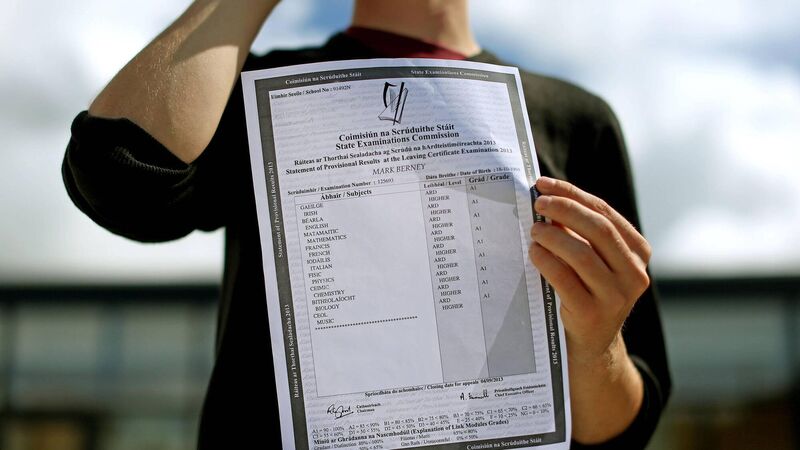Leaving Cert students want assurance UK's mistakes will not be repeated

Issu has called for written confirmation that the national standardisation process will not "advantage or disadvantage" any students. File picture
Leaving Cert students have sought written assurances from the Minister for Education that the statistical algorithm being applied to thousands of calculated grades will not replicate the mistakes seen in the UK.
The Irish Second-Level Students Union (Issu) has called for written confirmation that the national standardisation process will not "advantage or disadvantage" any students receiving their results next month.
This follows continued controversy in England, Scotland, Wales, and the North over the algorithm applied to teachers’ estimations there. Disadvantaged schools were more likely to see their students get their exams results downgraded by this process, while students in private schools were more likely to see their results boosted.
Here, Reuban Murray, the Issu president, has written to Norma Foley, the Minister for Education, seeking assurances on the process.
Ireland has a chance to learn from the mistakes with a similar model and to make sure it has the best model in place, he said. This includes making sure it does not advantage or disadvantage any students based on their location, gender, or school status.
Continually noted throughout the establishment of the calculated grades model was the ability of teachers and schools to award grades accurately to students, he said.
"This professional judgement should not be overlooked and altered based on a statistical algorithm never to have been trialed previously," he said.
The Issu is confident the department will ensure the hard work of teachers and students is not downgraded based on statistical figures, he said.
In a statement, a spokesman for the Department of Education said there are "significant differences" in the model used here to that of the UK. The starting basis for calculated grades are teachers’ estimates, he said. In the UK, it started with the historical pattern of achievement in each school. This rank order was then mapped.
"Other than in exceptional cases, the teacher estimates were not a significant factor," he said.
"The Minister insisted that the standardisation process in Ireland would be able to identify and fairly accredit the learning of an exceptional student, irrespective of the school that he or she attended."
In Ireland, students' performance cannot be constrained by historical school performance if data from teachers suggest that a student may be exceptional, he said.
"There is no evidence in the public domain of similar processes being used across the UK," he said.
The details of the process used will be published by the Calculated Grades Executive Office when results are issued.





